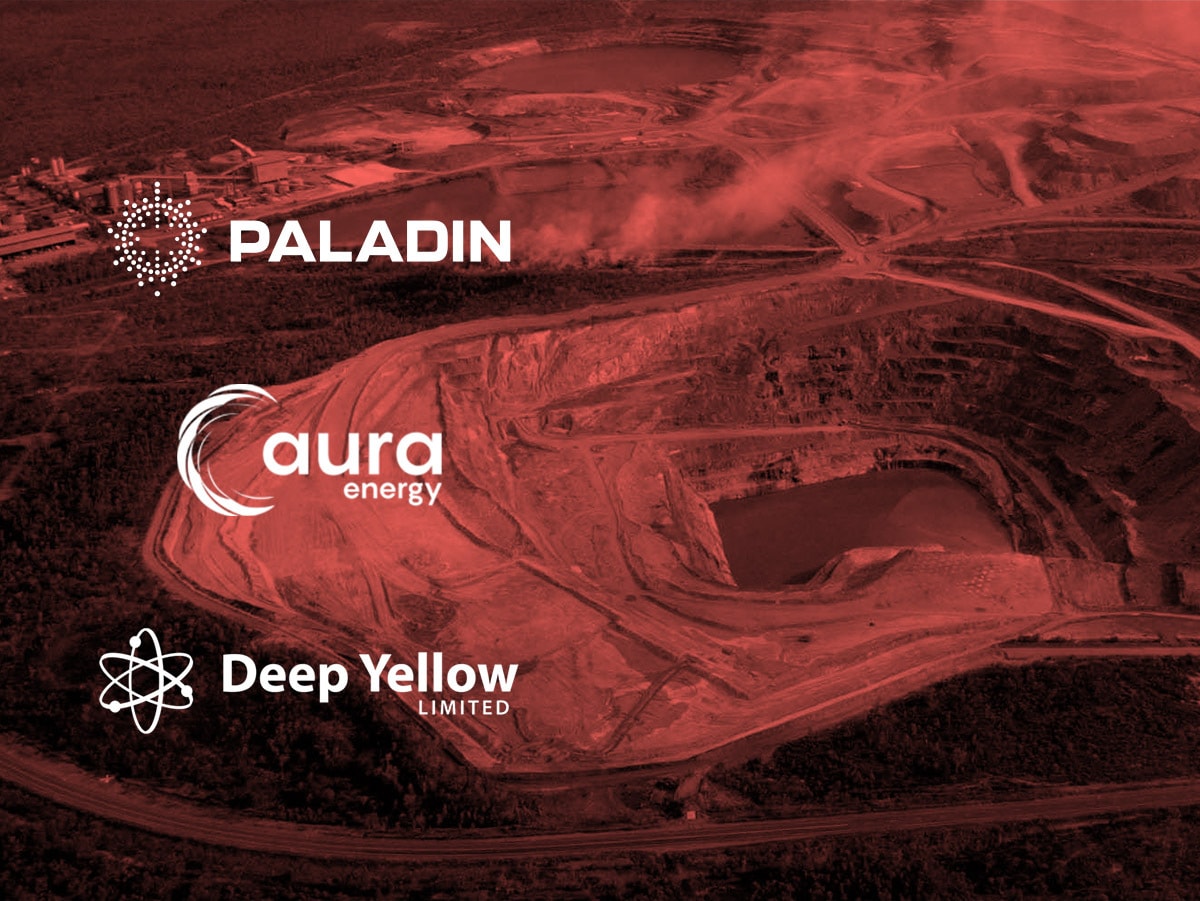Uranium stocks based in Australia such as Deep Yellow, Paladin and Aura Energy have been in an uptrend in the past month after Japan became the latest country to restart its nuclear power programme.
Investors have favoured Australian uranium miners Deep Yellow [DYL.AX], Aura Energy [AEE.AX] and Paladin [PDN.AX] in the past month. Uranium stocks have received a boost after news emerged that Japan was moving to restart its nuclear power programme.
Japan’s Prime Minister Fumio Kishida is planning to restart the use of nuclear reactors and develop new plants across the country. The move comes 11 years after Japan halted its nuclear plant ambitions in the aftermath of the Fukushima disaster. News of the government’s plan has catalysed the share prices of uranium producers that help to deliver the commodity to nuclear plants worldwide.
Considerable increases in global energy prices have led multiple countries to reconsider their nuclear power plans. Germany, which decided to abandon its nuclear power ambitions after the Fukushima disaster in 2011, has three plants still in operation, all of them slated to close by the end of the year. However, since Russia cut their gas supply to the country, there have been calls for extending the life of these plants to improve energy security.
Deep Yellow shares soar after merger
The Deep Yellow share price has outperformed its Australian uranium peers so far this year. Investors reacted positively to the company after it announced a merger with Vimy Resources to create a leading global uranium player. The merger is expected to Deep Yellow with a diversified mining portfolio with major uranium sites in Namibia and Western Australia and a combined target production of 6.5 million pounds per year of triuranium octoxide (a uranium compound).
In the last month, the Deep Yellow share price has soared 53% since Kishida’s announcement late last month. The future looks bright as well, with the group targeting the acquisition of new mining projects and building a geographically diverse portfolio of high-volume uranium operations over the next few years. When production gets underway, Deep Yellow anticipates being the largest pure-play uranium producer on the ASX.
Paladin rallies after reopening Namibian site
Paladin Energy, the largest of all three uranium producers by market capitalisation, has seen its shares grow 16% since the announcement from Japan. The Paladin share price has underperformed its peers this year with it being the only company trading in the red for much of the year. However, shares have rallied 58% since the beginning of July as the market outlook for the uranium industry brightens.
Paladin announced in June that it will restart production at its headline Langer Heinrich mine in Namibia. The mine shuttered in 2018 when low uranium prices made it economically unfeasible to keep running. The company decided to re-open it on the back of stronger uranium trading in the last year, with confidence that the trend will continue over the next couple of years.
The mine is planned to restart commercial production in the first half of 2024 with it already having produced over 43 million pounds of triuranium octoxide prior to its suspension. Paladin anticipates spending $118m to restart operations, a number up from $87m due to inflationary pressures.
Aura Energy eyes Mauritanian site expansion
Aura energy is the smallest of the three uranium producers with a market capitalisation of just AU$144.4m and has performed in the middle of the pack this year. With a 30% rise in the last month, its shares have also performed well off the brightening outlook for the uranium industry.
The company holds an 85% stake in the Tiris uranium project in Mauritania with expectations to produce at least 12.4 million pounds of triuranium octoxide over 15 years. The group has benefitted from the low capital cost of $74.8m for the project. The ore within the mine is relatively shallow, meaning that capital-intensive drilling and blasting is not required to extract the compound.
There are also plans to expand the site in the coming years, facilitating a potential increase of the project’s output by 3 million pounds per year for three years. This would help the company profit from higher uranium prices if increased nuclear power demands increase the price of raw materials.
Disclaimer Past performance is not a reliable indicator of future results.
CMC Markets is an execution-only service provider. The material (whether or not it states any opinions) is for general information purposes only, and does not take into account your personal circumstances or objectives. Nothing in this material is (or should be considered to be) financial, investment or other advice on which reliance should be placed. No opinion given in the material constitutes a recommendation by CMC Markets or the author that any particular investment, security, transaction or investment strategy is suitable for any specific person.
The material has not been prepared in accordance with legal requirements designed to promote the independence of investment research. Although we are not specifically prevented from dealing before providing this material, we do not seek to take advantage of the material prior to its dissemination.
CMC Markets does not endorse or offer opinion on the trading strategies used by the author. Their trading strategies do not guarantee any return and CMC Markets shall not be held responsible for any loss that you may incur, either directly or indirectly, arising from any investment based on any information contained herein.
*Tax treatment depends on individual circumstances and can change or may differ in a jurisdiction other than the UK.
Continue reading for FREE
- Includes free newsletter updates, unsubscribe anytime. Privacy policy





